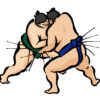What does sugoi mean in english? すごい?凄い?

“Sugoi(すごい:凄い)” is a word that is often used at any time, in any situation, regardless of age or gender.
You can hear it everywhere at work, school, home, stores, TV shows, movies, novels, comics, animations.
You can hear it everywhere at work, school, home, stores, TV shows, movies, novels, comics, animations.
If you are studying Japanese, you may have heard of “sugoi" and you should know it.
Let’s take a closer look at “sugoi".
What does “sugoi" mean?
Any Japanese knows the word “sugoi”.
It is used in both casual and business situations, but “totemo(とても)" and “taihenn(たいへん:大変)" are used if you want to say it carefully.
“Sugoi" has a slightly different meaning depending on the situation.
In English, “sugoi" means, amazing, wonderful, great, excellent, superb, fabulous or the like.
This can be used in good or bad meaning.
For example,
· Sugoi bijin (amazingly beautiful lady)
· Sugoi chikara (outstanding power)
· Sugoi sukiru (excellent skill)
· Sugoi oura (excellent aura)
· Sugoi atsusa (great heat)
· Sugoi enshutsu (wonderful production)
In a bad meaning,
· Sugoi atsukai (terrible treatment)
· Sugoi kakkou (awful appearance)
· Sugoi iikata (horrible way of saying)
· Sugoi souon (dreadful noises)
It can mean either “good” or “bad”, but if someone simply says “Sugo-i”, that person is probably saying it in a positive way.
Some younger adults (and some adults) may use “sugoi” as “chou/cho”. However, “chou / cho(ちょう:超)” cannot be completely used as a substitute for “sugoi”.
Also, “sugoi” is abbreviated as “sugo-(すごー)” or “sugo(すごっ)”.
The sound may change to “suggoi(すっごい)” or “sungoi(すんごい)” with a feeling of excitement.
There is also a “suge-(すげー)” or “sugee(すげぇ)" which is more casual. This sounds a little masculine, but young girls also use it.
Mr. Tsuda, one of the Japanese comedian called “Daian”, has his trademark gag “goigoisu-(ゴイゴイスー)” which is a variation of “sugoi". He is frequently saying it even if there is nothing really great.
Adverbial usage of “sugoi"
The adjective “sugoi" qualifies a noun.
If you understand Japanese to some extent, you will notice that “sugoi" changes to “sugoku(すごく)".
This is because “sugoi" is used as an adverb.
“Sugoku" qualifies adjectives such as “hot(あつい:熱い、暑い)" and “beautiful(うつくしい:美しい)".
Therefore it is used like this.
· Sugoku atsui (すごく厚い:It’s so thick)
· Sugoku atsui (すごく熱い:It’s really hot)
· Sugoku atsui (すごく暑い:Temperature is really hot)
· Sugoku utsukushii (すごく美しい:It’s so beautiful)
· Sugoku urusai (すごくうるさい:It’s too noisy)
· Sugoku tanoshii (すごく楽しい:it’s really fun)
Recently, some Japanese people use “sugoi” for anything without using “sugoku”.
This trend is seen in both youth and adults.
“Hidoi" similar to “sugoi"
“Hidoi(ひどい:酷い)" is a word that has a similar meaning to “sugoi".
“Sugoi" is used for both favorable and unfavorable things or situations. Although the meaning of “hidoi" is also “the degree is extraordinary", but it is only used in an unfavorable situation.
Is the origin of “sugoi" a “scary wife"?!
Writing “sugoi" in kanji is “凄い".
The right part of this kanji represents “wife" in Japanese.
It is said that when this word arrived from China, there was no word in Japanese kanjis that had a suitable sound. Since the Japanese language had a fewer number of pronunciations than Chinese, the word pronounced “sei” was used to read the arrived word.
There were other words that sounded “sei", but it happened to be used the kanji meaning “wife” as it had the closest sound.
Therefore, the right side of “凄" is only for the pronunciation sake with nothing to do with “wife".
It did not mean that Japanese wives in the old days were horrible or husbands were miserable in their marriage”.
(I have just explained to Japanese wives’ credit!)
















